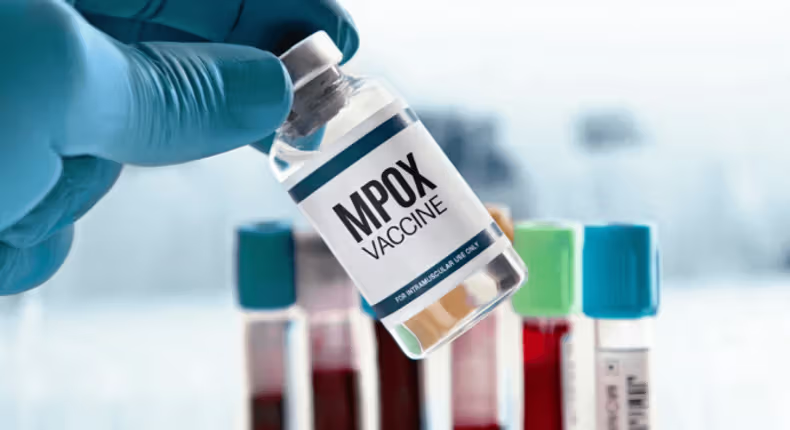The National Primary Health Care Development Agency (NPHCDA) has received 10,000 doses of the JYNNEOS vaccine from the United States to bolster Nigeria’s response to Mpox. Dr. Muyi Aina, Executive Director of NPHCDA, acknowledged this significant donation during a ceremony in Abuja on Tuesday, emphasizing that it represents more than just a delivery of medical supplies—it symbolizes the power of international cooperation in addressing global health challenges.
JYNNEOS, a third-generation vaccine licensed to prevent smallpox and Mpox, is recommended by the Advisory Committee on Immunization Practices (ACIP) for individuals at risk of orthopoxvirus infections, including Mpox. The vaccine, which is based on the live attenuated Modified Vaccinia Ankara (MVA) virus, does not replicate efficiently in humans, making it a safe option. Known internationally as Imvamune or Imvanex, JYNNEOS is fully licensed in the U.S. for use in adults aged 18 and older and became commercially available in April 2024.
Dr. Aina expressed deep gratitude to the American government for its generosity, noting that this act of solidarity reinforces the strong bond between Nigeria and the United States and underscores their shared commitment to global health security.
Reflecting on Nigeria’s significant Mpox outbreak in 2022 and the recent resurgence of cases, Dr. Aina stressed the ongoing threat posed by the virus. The World Health Organization’s (WHO) declaration of Mpox as a Public Health Emergency of International Concern has highlighted the need for continued vigilance and proactive measures.
The NPHCDA is dedicated to ensuring that the vaccines are distributed equitably and efficiently, with a strategy prioritizing frontline workers, individuals in close contact with confirmed Mpox cases, and vulnerable populations. The agency plans to collaborate closely with state and local health authorities to implement a targeted vaccination program that maximizes the impact of these limited but vital resources.
Dr. Aina emphasized that vaccination is just one component of a comprehensive approach to combating Mpox. Public awareness will also be a critical focus, with efforts to educate the public on Mpox symptoms, transmission routes, and preventive measures being intensified. He called on the media, healthcare providers, community leaders, NGOs, and citizens to join this crucial effort.
“Through collective action and shared responsibility, we can create a robust defense against this virus and protect the health of all Nigerians,” Dr. Aina said.
Mpox, previously known as Monkeypox, has been a persistent challenge in Nigeria, with sporadic cases historically managed. However, the current outbreak has heightened the urgency of response efforts, as Mpox, a zoonotic illness, can be transmitted from animals to humans and spread between humans through close contact.



